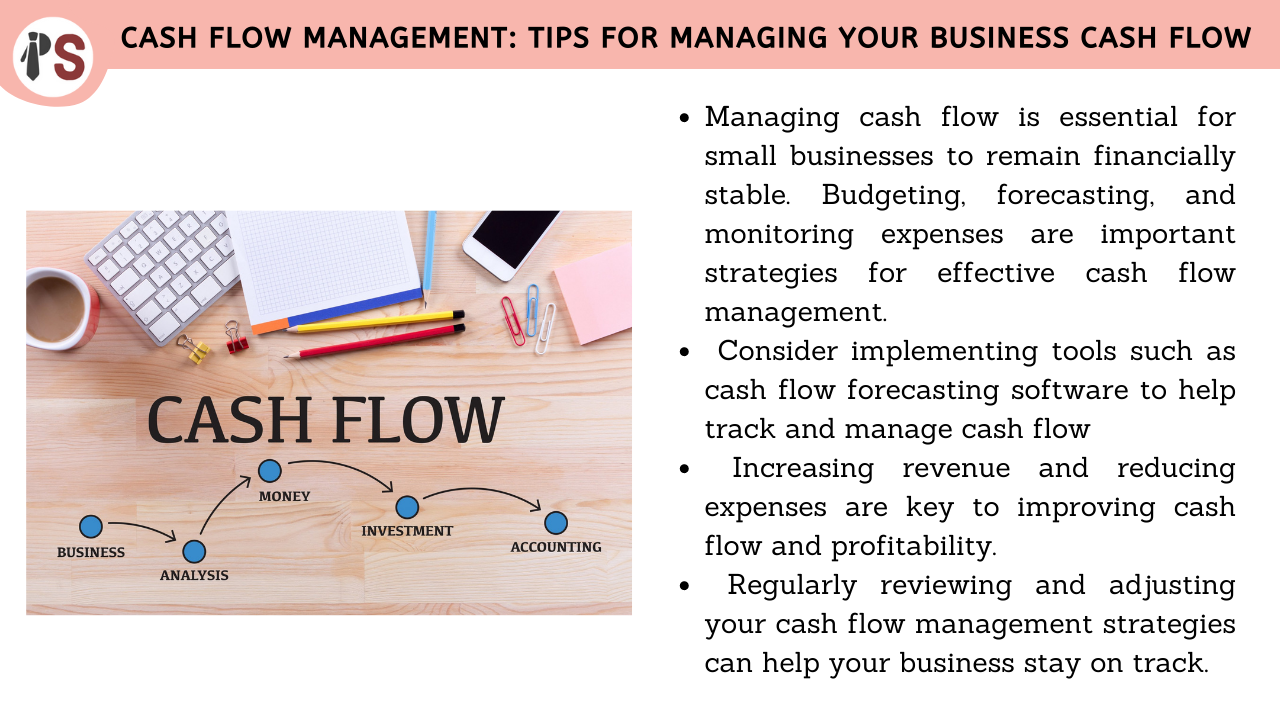
Cash flow management is a crucial aspect of running a successful business. Without proper management, a business can quickly run into financial trouble, making it difficult to cover expenses or take advantage of growth opportunities. In this blog post, we'll explore some tips for managing your business cash flow and staying on top of your finances.
Understand Your Cash Flow
The first step to effective cash flow management is to understand your cash flow. This means tracking the flow of money in and out of your business, including all incoming revenue, outgoing expenses, and investments. By monitoring your cash flow regularly, you can identify areas where you may be overspending or where you could make adjustments to improve your cash flow.
Create a Cash Flow Statement
A cash flow statement is a document that outlines your business's cash inflows and outflows. This statement helps you identify patterns in your cash flow and predict future cash flow needs. Creating a cash flow statement is essential for accurate cash flow management, as it allows you to track your business's financial health over time.
Improve Invoicing and Collections
Invoicing and collections are critical components of managing cash flow. To ensure that you receive payments on time, you should establish clear payment terms, send invoices promptly, and follow up with customers who are past due on their payments. Offering incentives for early payments or implementing penalties for late payments can also help you manage your cash flow more effectively.
Manage Your Expenses
Managing expenses is another crucial aspect of cash flow management. To reduce expenses, you should identify areas where you can cut costs without compromising the quality of your products or services. Negotiating with suppliers or finding alternative vendors can help reduce costs, as can implementing cost-saving measures such as energy-efficient equipment or telecommuting for employees.
Create a Cash Reserve
Creating a cash reserve is an essential component of cash flow management. Having cash reserves on hand can help you cover unexpected expenses or ride out a downturn in your business. As a general rule, businesses should aim to maintain at least three to six months of expenses in their cash reserve.
Monitor Your Cash Flow Regularly
Finally, it's essential to monitor your cash flow regularly to ensure that your business remains on track. This means reviewing your cash flow statement and making adjustments as necessary. By staying on top of your cash flow, you can identify potential issues before they become major problems and take steps to improve your financial health.
In conclusion, managing your business's cash flow is crucial to its success. By understanding your cash flow, creating a cash flow statement, improving invoicing and collections, managing expenses, creating a cash reserve, and monitoring your cash flow regularly, you can stay on top of your finances and position your business for long-term success
At Professional Saathi, we offer a range of business consultancy services that help businesses improve their performance, achieve growth, and overcome challenges.
Copyright 2026 © Created By KTPG PROFESSIONAL SAATHI CORPORATE CONSULTANT PRIVATE LIMITED, All Rights Reserved.
Leave Your Comment